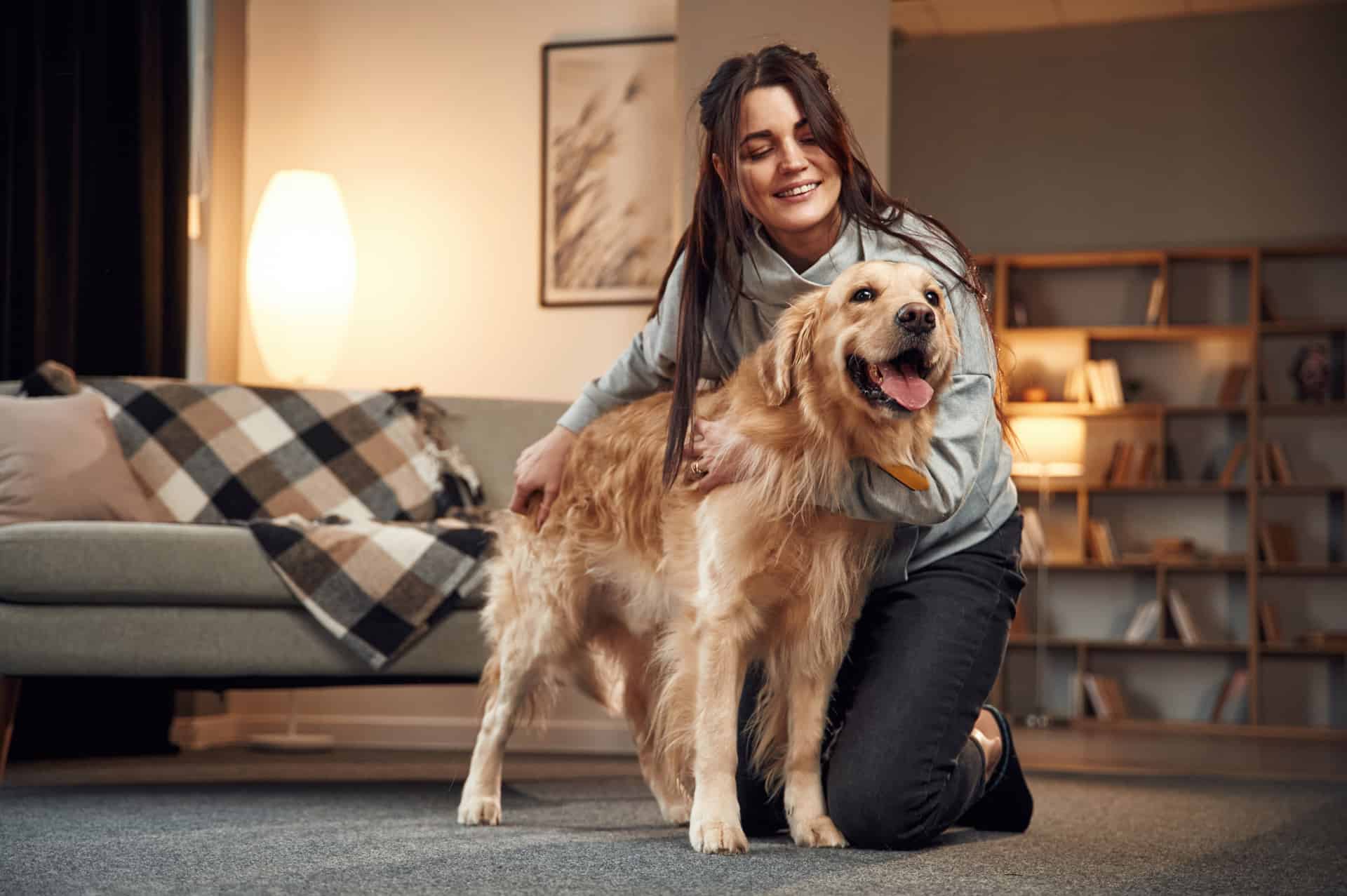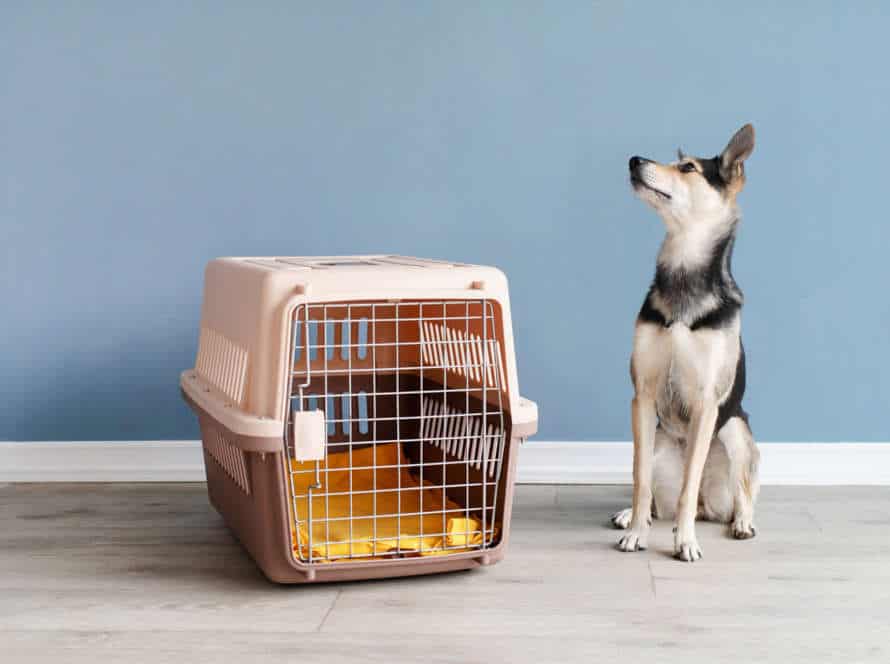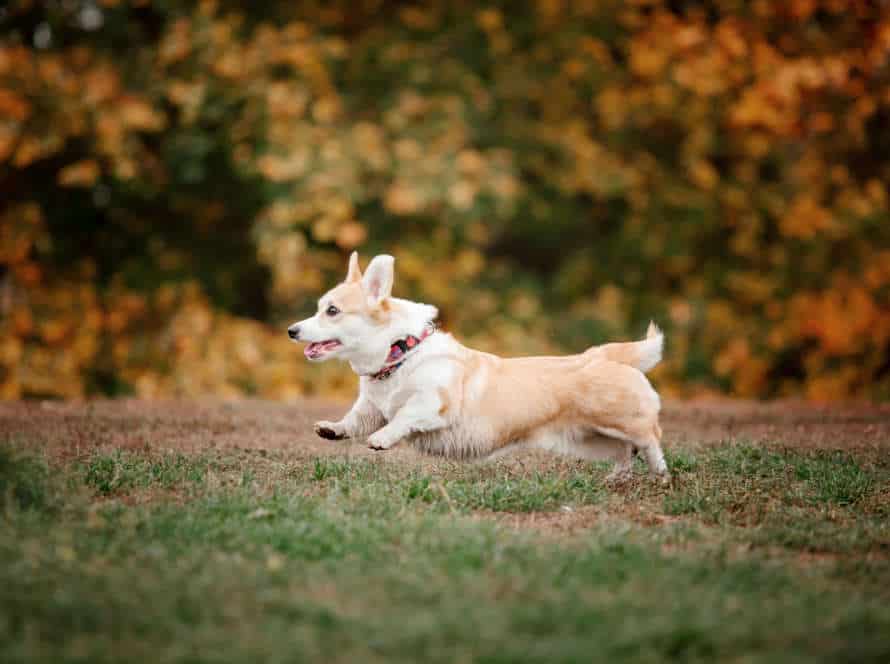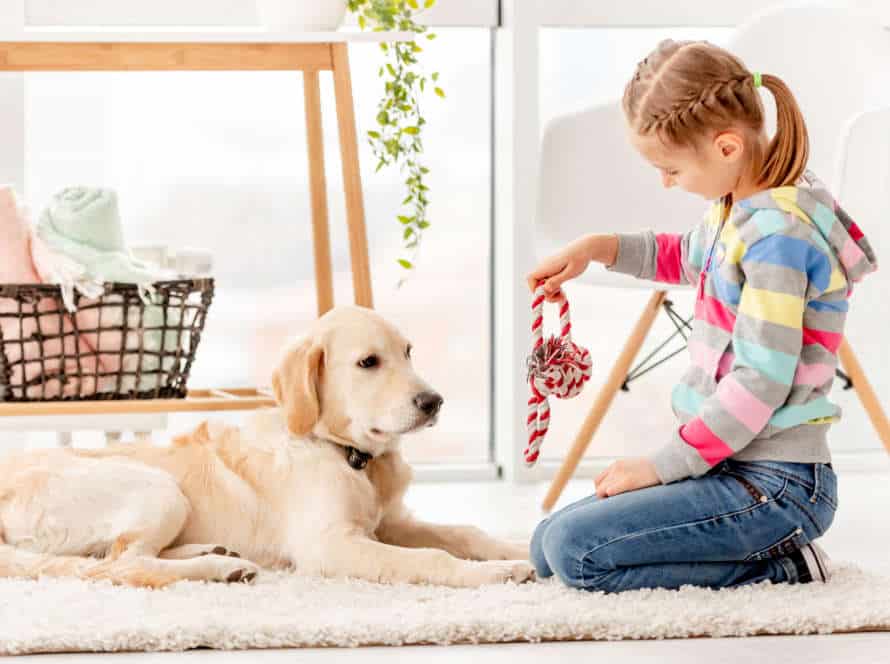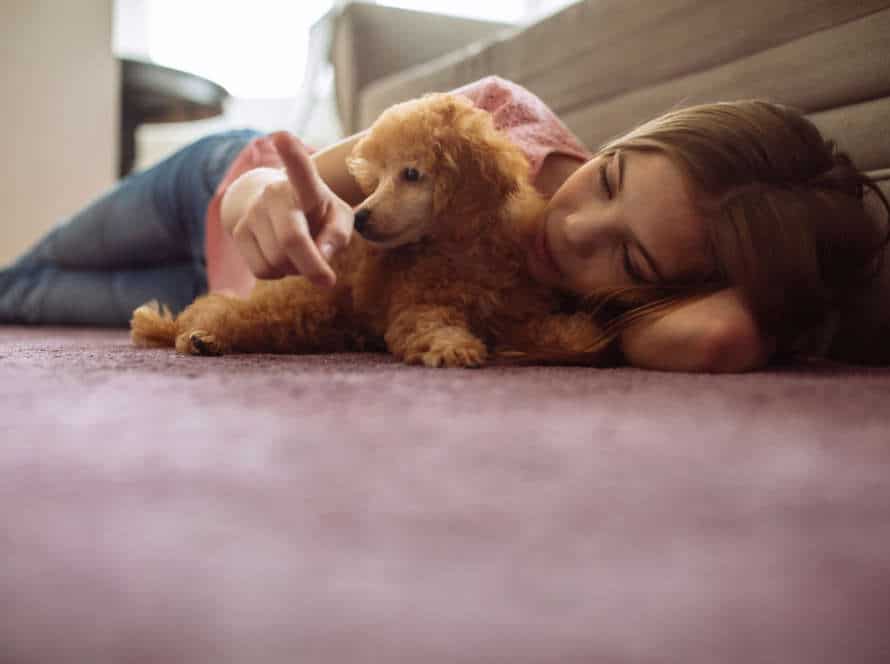When to Seek Professional Help for House Training Challenges
Training your pet can be tough, but sometimes your own efforts just aren’t enough. If this is the case, you may want to consider getting professional help. Here are some signs that it’s time to call in a pro:
- Your pet’s elimination schedule won’t change, no matter what you do.
- Your pet has frequent accidents despite training.
- Your pet gets anxious, scared, or aggressive when you train them.
- You’ve tried different training methods without success.
A professional dog trainer or behaviorist can help you figure out the issue and create a custom training plan. It definitely takes patience and hard work to house train your pet, but professional help can make a real difference!
Understanding the House Training Process
Getting a pet is awesome! You get to build a special bond with them. To train them, you need to make sure they’re comfortable in their new home and act properly. The house training process involves understanding the challenges you may face.
Let’s explore when it’s best to get professional help.
Basic house training tips and techniques
Training your puppy? It can be tough, but you can do it! Here are some tips to help you:
- Create a routine. Feeding, playtime, potty breaks should all have a schedule.
- Positive reinforcement. Praise your pup when they pee outside. Give rewards too!
- Consistent training. Use the same words and actions each time.
- Crate training. Make the crate a safe and comfy place. Not for punishment.
- Having trouble? Get help from an expert trainer or vet.
Common house training challenges and problems
House training your furry friend? It can be tough, especially if you’re a first-time pooch parent. But don’t worry! There are a few common issues that can get in the way of success. Here are the top four:
- Accidents inside the house
- Inconsistent training methods
- Fear and anxiety
- Medical issues
If you’re stuck, it’s time to turn to a professional. A certified trainer or vet can help you find the right tools, techniques, and guidance. Patience, consistency and praise are essential for success. Little victories deserve celebration, and don’t worry if there’s a setback – your pup will get there eventually!
When to seek help from a professional dog trainer
House training your pup can be tricky, but it’s necessary for you and your dog’s comfort and safety. In case issues arise, here are signs that you need professional help:
- Persistent accidents? Get an expert involved.
- Aggression? Growling, barking, or biting? Get a pro to help you.
- Fear or anxiety? If your pup is scared of house training or new places, a trainer can sort it out.
- Health issues? Check with a professional and a vet.
Seeking help when needed will help create a safe environment for you and your furry pal.
Signs That Your Puppy May Need Professional Help
Training your puppy to obey house rules can be tough! Usually, pups can get the hang of it in a few weeks. But, sometimes they need extra help. Here are signs that may mean you need to call a professional trainer:
Consistent accidents inside the home
Puppy accidents in the house? It’s normal during house training. But ongoing accidents mean your pup needs help. Here are signs that pro help is needed:
- No progress with house training despite effort.
- Stress in other areas, like barking or chewing.
- Accidents even after going outside.
A pro dog trainer or behaviorist can help you find the cause and make a plan. Pro tip: Consistency and positive reinforcement make house training successful!
Destructive behavior inside the home
Destructive behavior in the home is a common issue many pup owners have. It is essential to recognize the signs that your pooch may need expert help with house training. Here are the signs to watch out for:
- Your pup still has accidents in the house after many weeks of training.
- Your pup is anxious or overwhelmed in certain circumstances. Like when it’s alone or meeting strangers.
- Your pup chews on furniture or objects despite having plenty of toys.
- Your pup shows aggression to people or other animals.
If you spot these signs, it could be time to look for a professional dog trainer or behaviorist. To make sure your pup gets the care and training it needs. Pro tip: Be patient and consistent with your pup during training. This will get them closer to success!
A lack of progress or success in house training
House training a pup can be tricky. If it’s not going well, it could be time to get help. Here are signs to look out for:
- Puppy is over 6 months old and still not trained
- Accidents happen and pup doesn’t learn
- Puppy is scared or anxious about potty area
- You’ve tried different methods but nothing works.
Getting a pro trainer or behaviorist can make a big difference. It will lead to a happier and better-behaved pup.
How to Choose the Right Professional Dog Trainer
House training your pup can be tricky! If it’s tough for you, consider getting a professional dog trainer. How do you pick the right one? This article will help. It gives tips on how to find a professional dog trainer that’s perfect for you and your pup.
Credentials and certifications to look for
Finding the right pro dog trainer can be overwhelming. To make sure you choose the right one, look for the correct qualifications & certifications. Here are some to consider:
- CCPDT – needs 300+ training hours & pass a written exam.
- IAABC – needs 300+ dog training hours & pass a written exam.
- KPA – must finish a tough program on positive reinforcement techniques.
Additionally, check for trainers experienced with your dog’s breed & age. If house training is difficult, it may be time to seek help from a pro.
Signs you need help:
- consistent accidents despite training;
- lots of indoor marking; and
- aggressive behavior during house training.
Experience working with house training challenges
House training a pup can be tricky, especially for inexperienced owners. Professional help may be needed to solve the problem. Here’s how to choose the right trainer:
- Look for experience. They should have years of dog training and house training specifically.
- Ask for qualifications. Certifications from reputable organizations are a must.
- Positive reinforcement method. Choose one that uses positive reinforcement instead of punishment.
- Compassionate and patient. The trainer should be kind and patient with your pooch to make training successful.
If you can’t manage house training, get help. And remember: Prioritize your dog’s well-being and hire someone with the expertise and understanding to deal with the issue.
Training methods and philosophy
When selecting a pro pooch trainer, it’s essential to know their methods and beliefs. Find a coach who follows these rules:
- Positive reinforcement: Give treats when your pup does something right, no punishing for bad behavior.
- Consistency: Create a consistent schedule for your doggie that is easy to understand.
- Individualized: Each pup has its own personality, so a great trainer will modify their approach to fit the pup’s needs.
- Ongoing support: Training takes time, so look for someone who will give you help along the way.
If you’re having trouble house training, look for an instructor who knows how to help with similar challenges. Pro tip: Remember that consistency & patience are vital for house training success.
What to Expect from Professional House Training Services
Needing pro help with house training? There are certain things to expect. A pro house training service usually includes:
- Assessing the current situation
- Making a plan that’s specific to you
- Instructions for tracking progress
- Plus, they may advise on how to deal with any underlying issues causing the behaviour.
Let’s go over this in more depth.
Initial consultation and evaluation
The first step in getting professional house training services for your pets is the initial consultation and evaluation. During this, the trainer will observe and assess your pet’s behavior. They will also ask questions to understand your pet’s routine and past training sessions.
The trainer will then create a personalized training plan based on your pet’s behavior and your goals. They will provide you with feedback on how to reinforce positive behavior.
When your pet displays extreme behavior issues, like excessive barking, chewing, or aggression, it is recommended to seek professional help. A trainer can help you come up with a plan to correct these issues and help your pet’s behavior at home.
Customized training plan that tackles specific challenges
A customized training plan can help you address specific house training challenges with your pet. It may include techniques such as positive reinforcement, crate training, and behavior modification strategies.
To get the best results, you should seek out a qualified trainer who has experience dealing with your pet’s breed and behavioral issues. Working with a professional can give you a happier and better-behaved pet!
Pro Tip: Establish trust and a good working relationship with your trainer. Listen closely to their instructions and be consistent in the training regimen. This is key to success.
Ongoing support and guidance for long-term success
Professional house training services provide pet owners with ongoing support and guidance. This helps them achieve success in house training their pets.
What can you expect?
The trainer will assess your pet’s behavior, routine, and environment. This helps them create a custom program for your pet. They will also teach you how to use positive reinforcement techniques. This will help encourage good behavior and discourage bad behavior in your pet. The trainer offers ongoing support and guidance throughout the process.
Do you have any questions or concerns? They can help! If you’re having a hard time house training your pet, seeking professional help can help. This ensures long-term success and a healthy, happy living environment.
The Benefits of Seeking Professional Help for House Training Challenges
House training is essential for a content pet. It can take effort and be difficult. Getting professional help from a dog trainer can make the process easier. They can also give you helpful tips and advice.
Why seek professional help for house training troubles? Let’s find out!
Increased success in house training
House training a pup can be tricky for owners, but seeking professional help can make the process less stressful and more successful. Here are the advantages of seeking professional help with house training:
- A pro can give advice – they understand dog behavior and training methods, which can help you figure out why the pup is having trouble and how to fix it.
- A personalized plan – trainers can tailor the plan to the pooch’s personality, breed and learning style, increasing the likelihood of success.
- Consistent training – trainers can provide regular training sessions, which are key for effective house training.
It’s important to know when to seek professional help. If the dog’s behavior doesn’t improve, a trainer is your best bet.
Improved behavior and relationship with your dog
Professional help can be a game-changer for the behavior and relationship between you and your pup. Especially when it comes to house training. Here are the benefits of seeking a pro’s help:
- Expert guidance – Get personalized and effective solutions that work for your pup’s needs, personality and routine.
- Consistency – Learn how to maintain consistency in training and prevent mixed messages from different family members.
- Faster results – Get quicker, more reliable results compared to DIY approaches or trial and error.
- Positive reinforcement – Pros use positive reinforcement techniques which focus on rewarding desirable behavior. This helps create a trusting and respectful bond between you and your pup.
When to seek help – If Fido is having accidents or your home training tactics aren’t showing progress after a few weeks, consulting a pro can help you establish a lasting, positive relationship with your pup.
Reduced stress and frustration for you and your dog
House training can be a source of frustration and stress for both you and your pup. Professional help can help reduce these feelings! Here are some of the benefits:
- Custom solutions: A pro trainer will adapt the program to suit your pup’s needs and your lifestyle.
- Save resources: Professional help can save time and money by helping you avoid common mistakes.
- Strengthen the bond: It can help you understand your pup better and build your relationship.
If your pup is having accidents inside or showing signs of stress, it may be time to get some help!
Frequently Asked Questions
Q: When should I seek professional help for house training challenges?
A: If you’ve been trying for more than six months and your dog still isn’t house trained, or if your dog is having accidents despite your efforts, it may be time to seek professional help.
Q: What kind of professionals can help with house training challenges?
A: A professional dog trainer or a veterinary behaviorist can help assess the situation and provide guidance on how to address the challenges you’re facing.
Q: How do I find a qualified professional to help with house training challenges?
A: Ask your veterinarian for a referral, or look for a dog training or behavior consultancy that employs certified trainers or behaviorists with a strong reputation in the industry.
Q: Can house training challenges ever be too severe to be fixed?
A: It’s rare, but in some cases, severe and longstanding house training challenges that have gone untreated for a long time can be very difficult to fix, and may even be impossible to overcome completely. However, consulting with a professional could still provide some improvements.
Q: What should I expect when working with a professional to address house training challenges?
A: The professional will assess your dog’s behavior, and work with you to develop a customized training plan. You can expect regular check-ins and evaluations, as well as adjustments to the training plan as needed.
Q: How long does it typically take to resolve house training challenges with the help of a professional?
A: It depends on the dog and the severity of the issues. In some cases, it can take a few weeks to a few months to see significant improvements, while in other cases it may take longer. Consistency and follow-through with the training plan are key.

